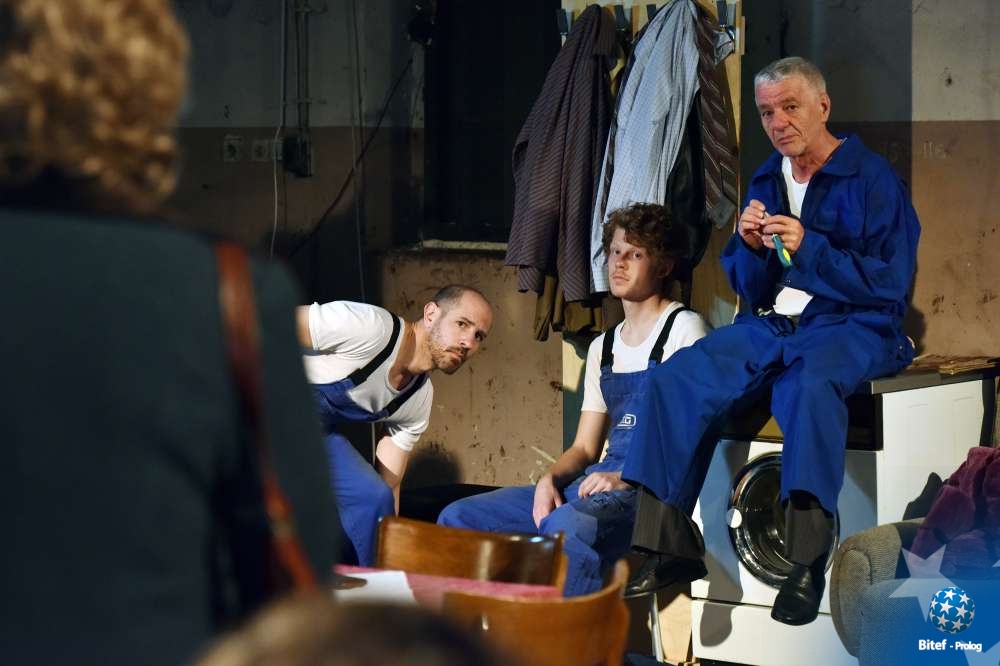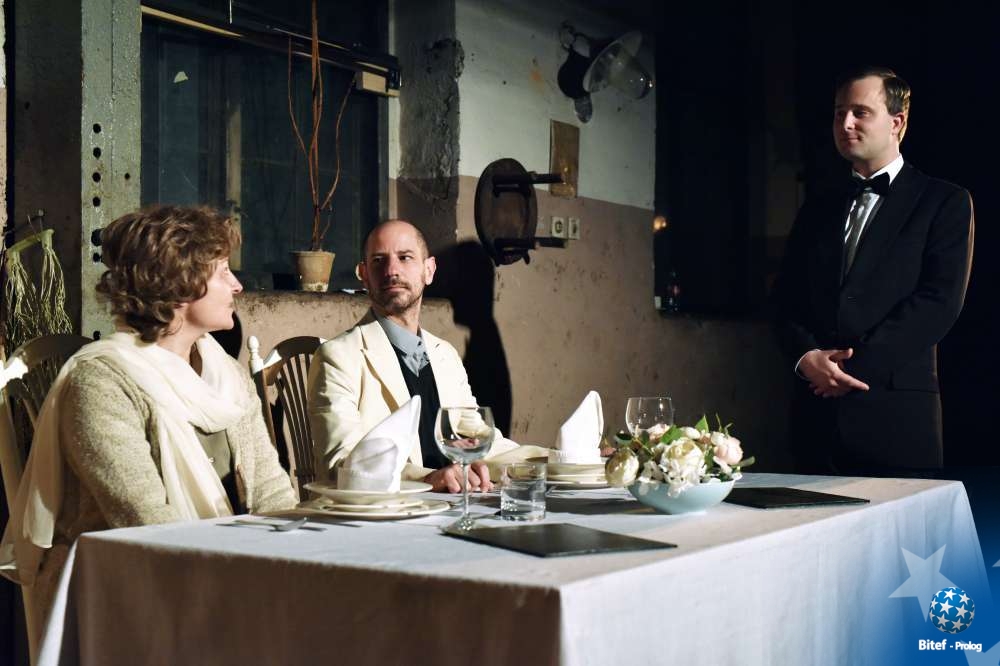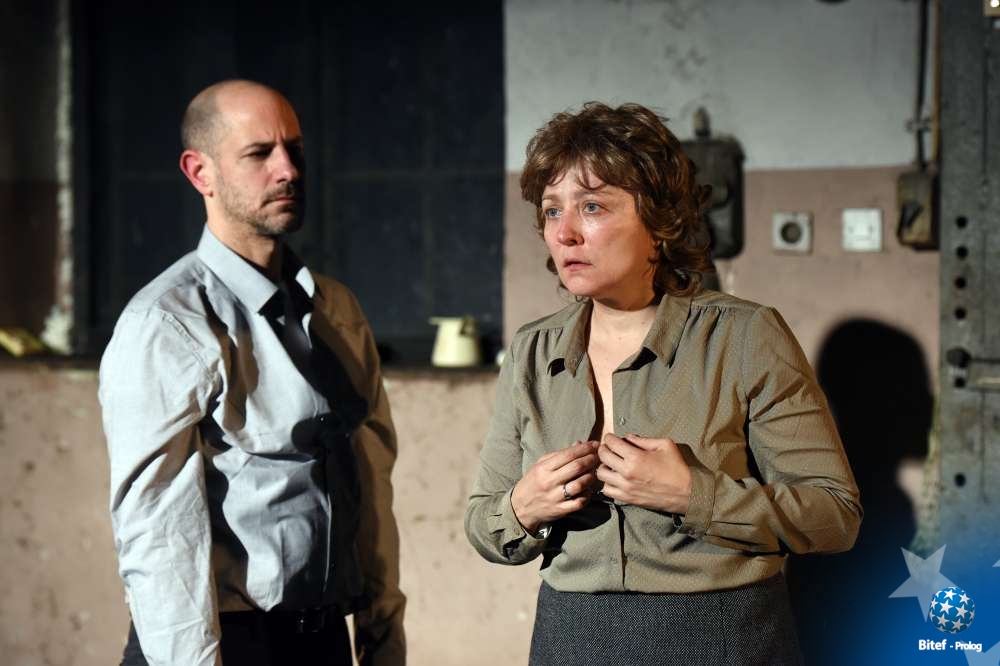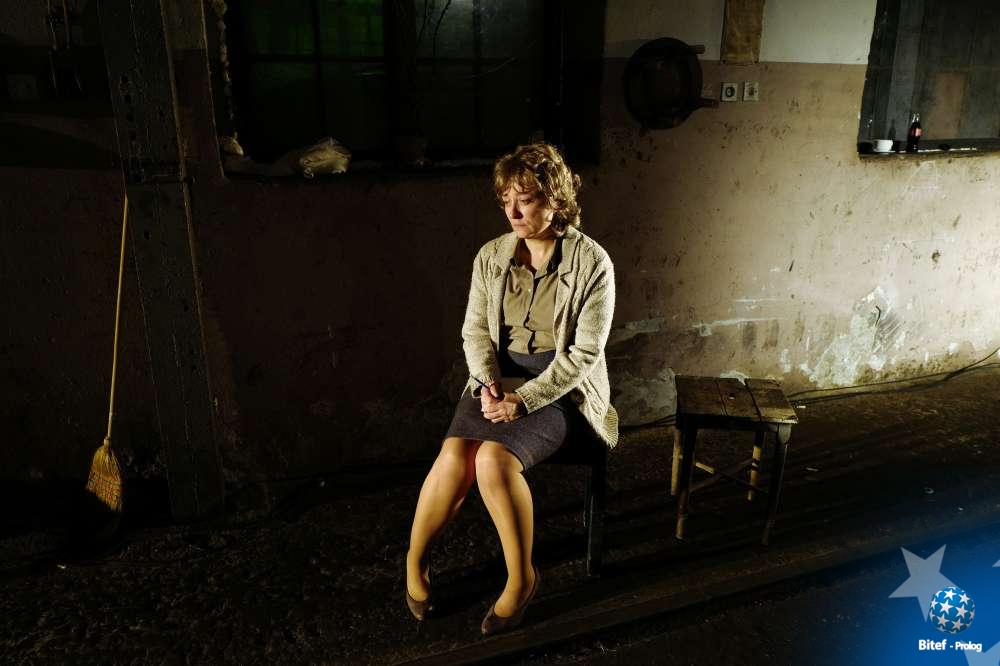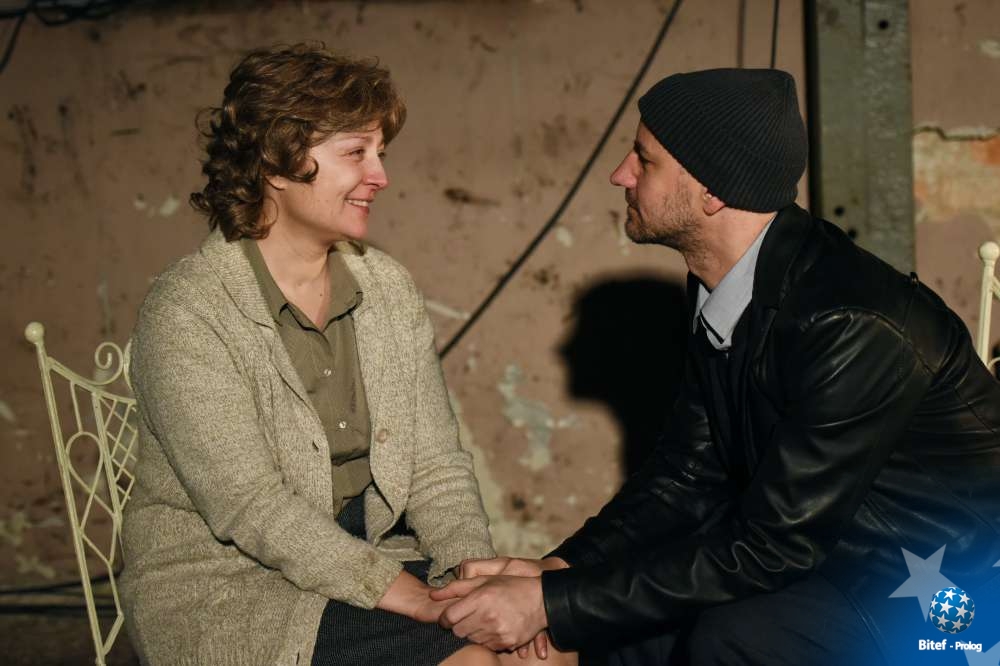About the production
Germany, 1970s. A 40-year-old Moroccan Ali is one of numerous migrant workers pursuing happiness in the golden years of economic migrations. Emmi, a 60-year-old widow, earns a living as a cleaning lady. Genuine feelings of warmth and attraction spring up momentarily between them. However, their relationship stumbles upon strong prejudice and lack of understanding from their environment, whose narrow-mindedness is challenged by Ali’s origin and his social position of a “guest worker”, let alone his relationship with Emmi, 20 years his senior. In his acclaimed movie Ali: Fear Eats the Soul (1974), Rainer Werner Fassbinder divulges a complex and gripping love story set on the margins of society. Using his signature modernist aesthetics, he allows the viewer of this theatre performance to confront social stereotypes that even today - especially in view of the recent wave of migrations, xenophobia and conservatism - remain neuralgic points of society and humanity.
Authors
RAINER WERNER FASSBINDER (1945-1982) was a West German filmmaker, actor, playwright, theatre director, composer, cinematographer, editor, and essayist. He is widely regarded as a prominent figure and a catalyst of the New German Cinema movement. Although Fassbinder's career lasted less than two decades, he was extremely prolific; by the time of his death, Fassbinder had completed over forty feature films, two television series, three short films, four video productions, and twenty-four plays. Fassbinder’s film Ali: Fear Eats the Soul (1974), revolving around the romance that develops between Emmi, an elderly German woman and Ali, a Moroccan migrant worker in post-World War II Germany, is considered one of his most powerful works and is hailed by many as a masterpiece. It won the International Federation of Film Critics award for best in-competition movie and the Prize of the Ecumenical Jury at the 1974 Cannes Film Festival.
SEBASTIJAN HORVAT is one of the most acclaimed and creative Slovenian theatre directors. He was born in Maribor in 1971. As a student of the legendary director and professor Dušan Jovanović, he graduated (in 1998) in Theatre Directing from the Academy of Theatre, Radio, Film and Television in Ljubljana with the staging of Elsinor, an original adaptation of Shakespeare's Hamlet, that won the University of Ljubljana Prešern Award for directing. As a theatre director he has worked in all professional theatres in Slovenia and many theatres abroad. For his theatre work he has also received the national Prešern Fund Award for theatre direction, Montblanc Young Directors Project Award at Salzburg Festspiele, the Borštnik Award for direction, Grand Prix and Šeligo Award at the Week of Slovenian Drama. Since 2005, Horvat has worked as a senior lecturer of Theatre Directing at the Academy of Theatre, Radio, Film and Television in Ljubljana. He is also one of the founders of the independent theatre institute E.P.I. center.
MILAN MARKOVIĆ MATTHIS is a Belgrade/Malmö/Ljubljana based dramaturge, playwright and performer, born 1978 in Belgrade. His plays have been staged in Serbia, Croatia, Slovenia, Lithuania and England and published in Bosnian, English, German, Slovenian and Serbian language. He has worked as a dramaturge in Croatian, Danish, German, Slovenian and Serbian theatre productions. He is also an active member of contemporary dance scene and independent performing arts scene in Belgrade. In 2001, he received Josip Kulundžić award for his play Bench, in 2003 Slobodan Selenić award for the play Good Boy and in 2013 Borislav Mihajlović Mihiz award for achievements in playwriting. Marković Matthis is also the founder and editor or www.nova-drama.org.rs, achive website dedicated to promotion of new playwriting. Between 2008 and 2013 he was a member of the editorial board of theatre magazine Scena (Novi Sad).
IGOR VASILJEV was born in 1973 in Pula. He obtained his Master’s Degree in stage design at the Faculty of Applied Arts in Belgrade. Working as an author of stage design in various genres of performing arts and as an explorer in the field of graphic design and digital media, he has created sets for more than seventy productions in theatres in the region (Serbia, Croatia, Montenegro, Bosnia and Herzegovina, Slovenia), as well as in several European theatres (Great Britain, Denmark, Austria) or festivals (Edinburgh festival, Taschenoper Festival Salzburg etc.). His selected set designs have been presented in Spectacular! Stage Design book in 2015. Igor Vasiljev won the Award for Best Set Design at the Assitej Festival in Čakovec and the Naj, naj, naj Festival in Zagreb in 2015 and 2018; the 2011 Annual Award for scenic design from ULUPUDS; recognition for stage design at the YUSTAT Biennale of Stage Design and annual awards for set design from the “Duško Radović” Little Theatre. He has also exhibited in the Prague Quadrennial of Performance Design and Space, PQ99. Together with Petra Berg, he manages Aber Dabei International Performing Arts Collective based in Denmark.
From the reviews
The director, the author of the adaptation and dramaturge Milan Marković Matthis, and the rest of the team have managed to meet a true challenge, for they have preserved coherence and a clear plotline on top of achieving onstage acrobatic stunts while, first and foremost, focusing on the meaning of an individual’s intimate life.
Peter Rak, Delo
The main role of Emma Kurowska was performed by Nataša Barbara Gračner, who has created her character with utmost quality. In line with Fassbinder’s film, Sebastijan Horvat in his theatre play manages to lucidly dismiss social stereotypes that despite time passed remain very much alive even today - racism, xenophobia, discrimination of women.
Marjana Novak, TV Slovenija, Umetnost igre
Though this may seem to be a performance on racism, euphemistically dubbed intolerance, its actual theme is love; not so much a theme as material, really; the performance is, actually, an attempt to position a certain matter; love as a challenge, as a fascinating challenge placed in front of an inner phenomenon of socialization…
Nenad Jelesijević, www.performans.si, Afirmacija eksotike
